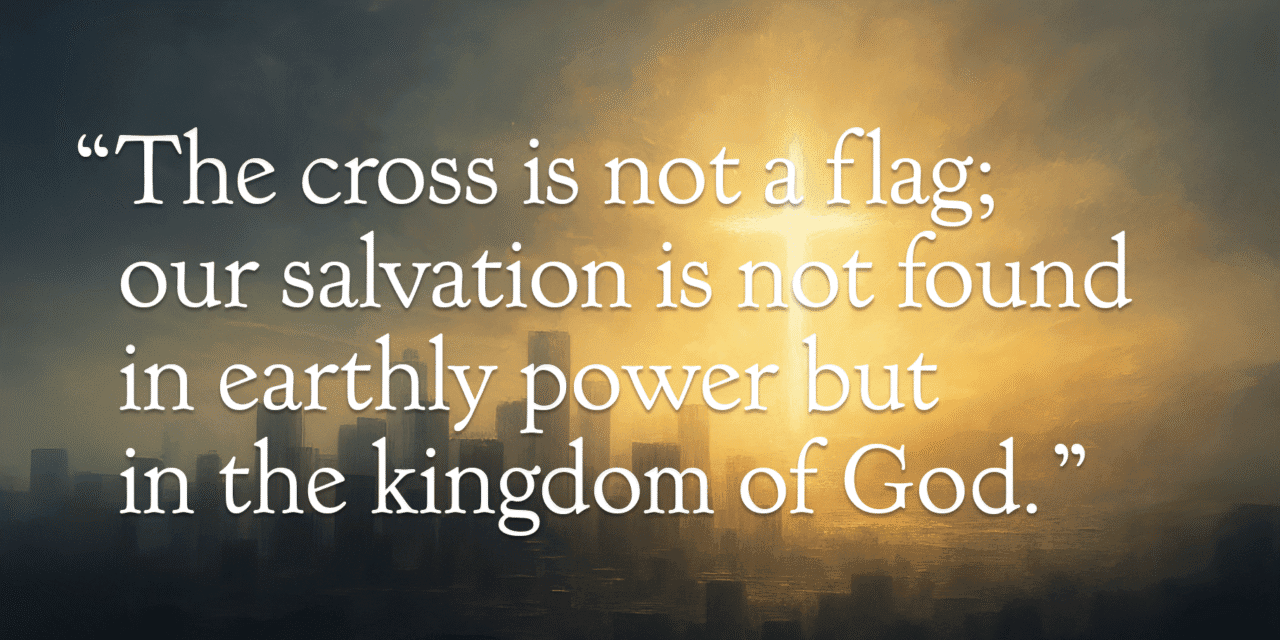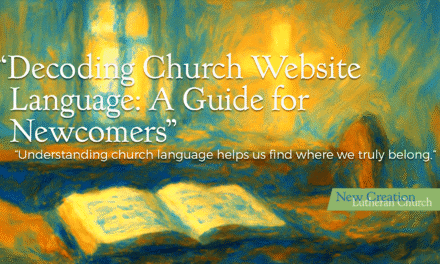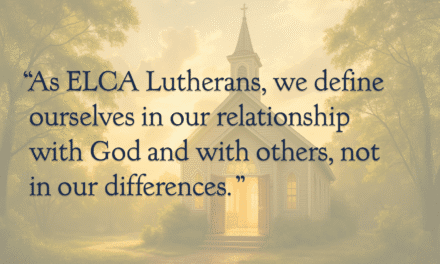Introduction
Recent coverage of Douglas Wilson’s outspoken advocacy for a “Christian republic” has reignited tension in both faith and public life. Headlines are asking: What is Christian nationalism, and how does it relate or conflict with the Gospel? In this post, we’ll explore Christian Nationalism vs. the Gospel through a biblical lens, reflect on the temptations national allegiances bring, and offer a way forward for Christians navigating faith in a politically charged climate.
Biblical Lens: Earthly Kingdoms vs. Heaven’s Reign
When Pilate asked Jesus, “Are you the king of the Jews?” Jesus replied, “My kingdom is not of this world.” (John 18:36). That statement upends many assumptions about power, authority, and loyalty.
Throughout Scripture, God’s people are reminded that earthly kingdoms are temporary. Empires rise and fall. The reign of Christ is eternal. Daniel, the prophets, and New Testament writers warn against trusting in horses, chariots, or human might (Psalm 20:7; Isaiah 31:1; Revelation 13). The kingdom Jesus inaugurates is one of justice, peace, mercy, and sacrificial love (see Luke 4:18–19; Matthew 5–7).
When we begin to equate the mission of Christ with a political movement, we risk conflating what is eternal with what is passing. The Gospel is not primarily about gaining influence in civic institutions but about calling people into allegiance under Jesus, who brings forgiveness, transformation, and reconciliation.
Reflection: When Nationalism Distorts the Gospel
The Allure of National Identity
Nationalism offers clear identity, belonging, and a sense of shared purpose. In times of uncertainty, it becomes tempting to seek security in cultural roots, flags, and political power. It can feel good to say, “We are a Christian nation,” as though faith and country must always align.
The Danger of Superseding Christ
Yet when national loyalty eclipses loyalty to Christ, the Gospel suffers. The cross becomes a banner of our own ideology instead of a scandalous invitation to sacrificial love. We start measuring faithfulness by political or cultural conformity rather than obedience to Christ.
For example, some Christian nationalists argue that a society should legislate morality or privileges for Christians. But the Gospel proclaims freedom in Christ, not coercion by law. It declares that Christ died for sinners, not citizens of certain nations.
Douglas Wilson, a prominent advocate of Christian nationalism, has challenged the idea that Christians ought to separate faith from political authority. He has argued for a “Christian republic” in which public policy would reflect biblical principles. Critics warn this view flirts too closely with theocracy and risks the marginalization of dissenting voices.
The New Apostolic Reformation and Dominionist Roots
Part of the intellectual soil from which modern Christian nationalism grows is the New Apostolic Reformation (NAR), a movement that promotes Christian dominion over societal “mountains” (government, education, media, etc.). While not all proponents of Christian nationalism identify with NAR, the shared aspirations toward a “Christian society” reveal deep theological tensions about how Christians should engage culture.
Practical Takeaway: Living as Citizens of Heaven First
1. Re-center Our Primary Allegiance
Always say first: I am a citizen of heaven. Everything else, nationality, politics, tribe, is secondary. Let the hope of Christ’s coming kingdom shape your identity, not the rhetoric of earthly power.
2. Humble Service Over Political Clout
When the church seeks influence above love, the Gospel becomes co-opted. Jesus washed feet (John 13). Paul told us to outdo one another in honoring others (Romans 12:10). James tells us true religion cares for orphans and widows (James 1:27). Let service, compassion, and humility define our witness more than slogans or platforms.
3. Speak Truth with Grace
We don’t back away from the public square. We enter it as pilgrims, not conquerors. We can speak prophetically against injustice, fear, and exclusion, always in the posture of repentance, love, and humility.
4. Love Across Divides
Christian nationalism often draws lines: who is in, who is out, who is American enough, who is Christian enough. The Gospel invites boundary-crossing love. Jesus died for people across nations, tribes, and ethnicities. Let your friendships, prayers, and actions reflect that breadth.
5. Anchor in the Word, Not a Political Program
Always test political proposals against Scripture, not the reverse. The Gospel is not the appendage of any political agenda. Let the Bible govern our vision, not party platforms.
Call to Reflection
Ask yourself:
- How can I live today as a citizen of heaven, in ways that soften hearts, not harden divides?
- In what ways do I treat my national identity as if it were part of my salvation story?
- Where might I feel the temptation to let political loyalty shape my understanding of faith?









 Our Latest Updates on
Our Latest Updates on
